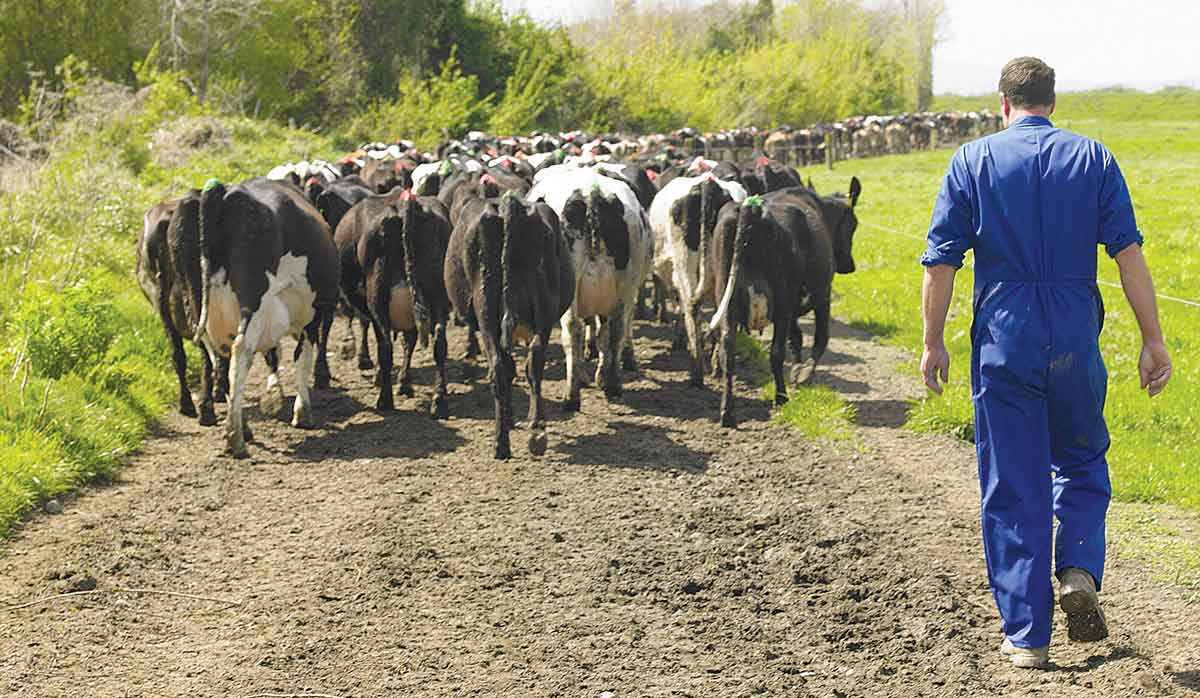DairyNZ opens applications for associate director role
DairyNZ is giving New Zealand farmers a unique opportunity to gain hands-on governance and leadership experience within the dairy sector.
Moving Day is the busiest time of the year for livestock movements.
Animal welfare and good biosecurity practices, including complying with traceability requirements, are critical over this period.
Both DairyNZ and OSPRI urge farmers to follow advice.
"When NAIT compliance is compromised, our traceability system is threatened, and we run the risk of having a system that will not perform in the event of another disease outbreak," says OSPRI.
"We ask that farmers read and understand their requirements as we embark on the Moving Day period."
DairyNZ advises that cull cows be sent to a processing facility nearby.
"Minimising transport time and distance is better for the cow and you, because risk of injury or going down increases with time and distance.
"Only transport cows that are not likely to give birth during the journey or within 24 hours of arriving at the destination: if within four weeks of calving date, travel should be less than two hours."
Farmers must make sure that animals are fit for transport by checking for the following:
It is also recommended that farmers stand stock off green feed for at least four hours, but for no more than 12 hours.
A grazed-out paddock or stand-off pad are better options because concrete surfaces can contribute to tender feet and aren't good for lying.
Continue feeding silage, hay or straw during stand-off, especially for lactating cows or prior to long-distance journeys.
DairyNZ says farmers must ensure all stock have access to water prior to loading.
"Many farmers have plumbed in a basic water trough at the yards that can be filled while the yards are in use. Remember, this will be their last chance to eat and they won't get a drink until they arrive," it says.
Lactating cows need extra calcium, in addition to extra magnesium, on the day of transport. The extra calcium could be given as an oral drench, extra allowance of a calcium-enriched meal, or a slurry poured over dry feed.
Keeping Records
All movements of cattle and deer between NAIT locations must be recorded in NAIT within 48 hours of them leaving one property and arriving at a new property.
The Person in Charge of Animals (PICA) sending the animals is resposible for recording a sending movement in NAIT. The PICA receiving the animals is responsible for recording a receiving movement.
 |
|---|
|
All movements of cattle and deer between NAIT locations must be recorded in NAIT within 48 hours. |
All animal movements between NAIT locations must be recorded, even if:
All movements of NAIT animals to and from a registered NAIT location must be recorded in NAIT within 48 hours of the animals leaving a property or arriving at a new location.
The World Wide Sires National All Day Breeds Best Youth Camp Best All Rounder plaudit has become family affair, with 2026 Paramount Cup winner Holly Williams following in her sister Zara's footsteps.
DairyNZ is giving New Zealand farmers a unique opportunity to gain hands-on governance and leadership experience within the dairy sector.
Herd improvement company LIC has posted a 5.2% lift in half-year revenue, thanks to increasing demand for genetics.
According to the latest Fresh Produce Trend Report from United Fresh, 2026 will be a year where fruit and vegetables are shaped by cost pressures, rapid digital adoption, and a renewed focus on wellbeing at home.
The Roar is a highlight of the game hunting calendar in New Zealand, with thousands of hunters set to head for the hills to hunt male stags during March and April.
OPINION: The past few weeks have been tough on farms across the North Island: floods and storms have caused damage and disruption to families and businesses.